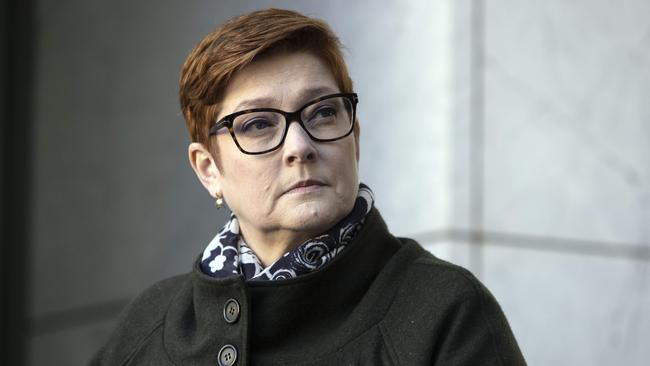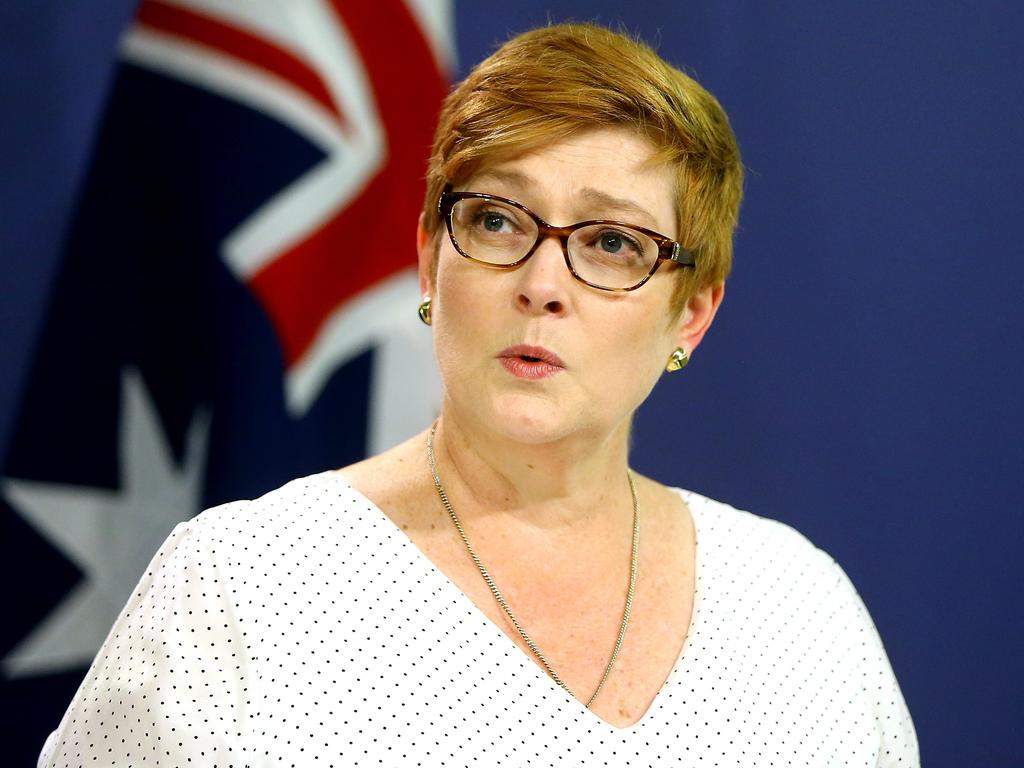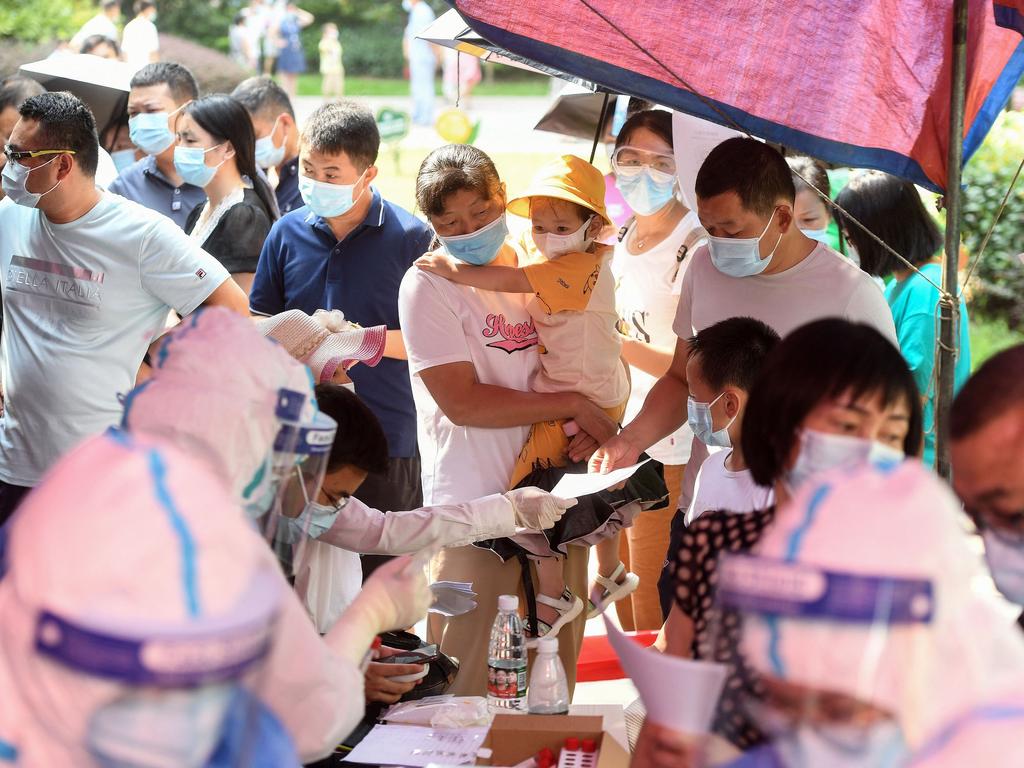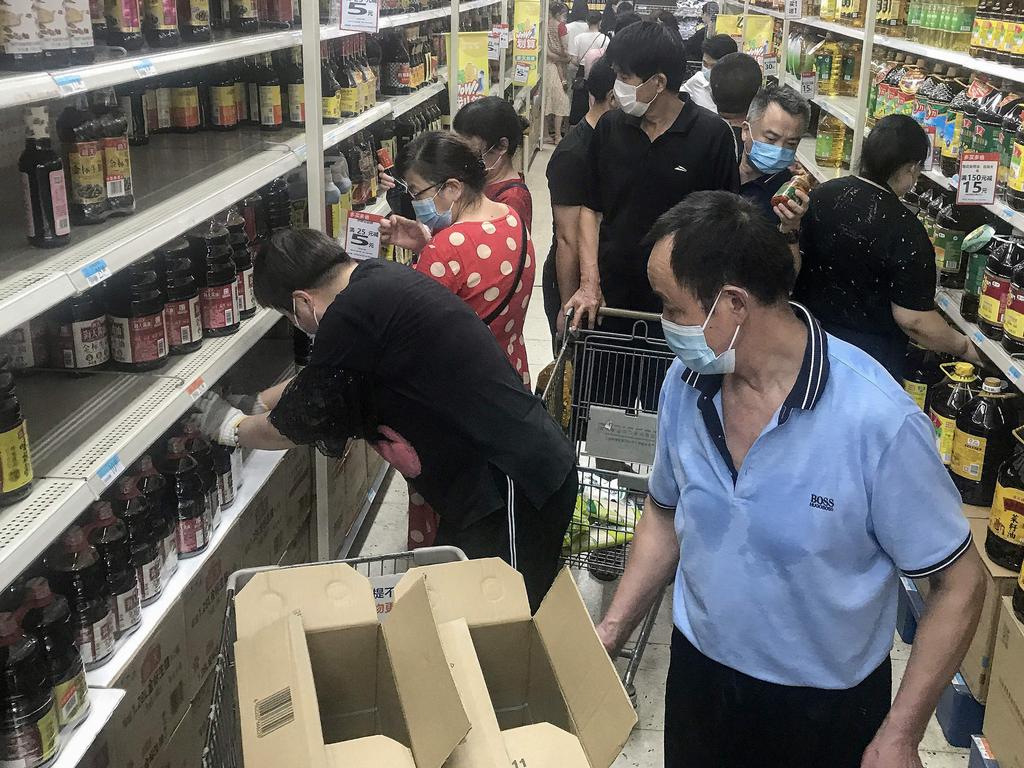Marise Payne dismisses China talk terms
Australia will not be cowed into accepting Beijing’s demands as preconditions to restarting high-level dialogue, Marise Payne says.

Australia will not be cowed into accepting Beijing’s preconditions for the recommencement of high-level dialogue with China, Marise Payne says.
In a forthright address to Australia’s most China-exposed businesses, the Foreign Minister said there was still no path to normalise the relationship that spectacularly unravelled last April and argued that China was holding the relationship hostage.
“We have been advised by China that they will only engage in high-level dialogue if we meet certain conditions. Australia places no conditions on dialogue,” she told the Australia China Business Council’s annual Canberra gathering.
“We can’t meet the conditions, such as the now well-known list of 14 grievances raised in the media last year.”
Officials from China’s embassy in Canberra last November circulated a list of 14 grievances with the Australian government, including rejected Chinese investment deals, the ban on Huawei’s involvement in Australia’s 5G network, the passage of foreign interference legislation, the call for an independent inquiry into Covid-19 and what Chinese diplomats described as “incessant, wanton interference in China’s Xinjiang, Hong Kong and Taiwan affairs”.
The list followed strikes by Beijing on Australian exports worth more than $20bn a year, including coal, wine, barley, lobsters and timber.
Those bans remain in place.
Senator Payne on Thursday rejected Beijing’s characterisation of the Morrison government as “anti-China”.
“Where we raise certain behaviours or certain challenges to long-agreed rules, that doesn’t mean that we are anti-China or anti any other country,” she said.
“It means we want all countries to operate by the rules that protect our shared interests and those of all countries – large and small.”
Unlike past years, no representative from China’s embassy in Canberra spoke at the Australia China Business Council’s major annual event.
Ambassador Cheng Jingye had been scheduled to give the opening address when it was to run at Parliament House and was to host a reception for guests at the Chinese embassy.
“Unfortunately, because of Covid, it didn’t come to be,” the council’s chief executive, Michael Clifton, said.
Covid-19 outbreaks in Sydney, Melbourne and Brisbane made attendance impossible for most of the business council’s members, so the summit was held online.
Speaking from her parliamentary office, Senator Payne noted she was at the online East Asia Summit foreign ministers’ meeting on Wednesday with China’s Foreign Minister, Wang Yi, and would join him and their regional counterparts again on Friday at the ASEAN Regional Forum.
“We remain open — genuinely open — to dialogue with China,” she said. “We have made that clear to China on many occasions.”
Trade Minister Dan Tehan, whose counterpart in Beijing has refused to take his calls since his appointment to the portfolio last December, said Australian and Chinese officials in Geneva had recently been working co-operatively on reform of the World Trade Organisation.
“This is one of the positive things we have seen in the relationship in the last few months,” he said.
In a later session, Labor leader Anthony Albanese said the relationship with President Xi Jinping’s China would “continue to be challenging”, even under a change of government, but it was “a pity” Scott Morrison had rejected his suggestion earlier this year to use former prime ministers Kevin Rudd and John Howard in an “informal role” to engage with Beijing.
“We need to be diplomatic in how we deal with China,” Mr Albanese said.
In the same session, Labor foreign affairs spokeswoman Penny Wong said Australian public sentiment about the country’s biggest trading partner had fallen sharply because the people had “observed the way that China has changed … and they understand the ways in which differences with China are structural and enduring and have to be managed by any government”.
Senator Payne said Australia was “following a clear strategy informed by clear objectives and principles. In working with China, we want a relationship that serves the interests of both countries in which each respects the other’s interests.”
But she acknowledged the many points of ongoing friction.
“Where it is in our interest to do so, we will call out malicious cyber activity that can and does undermine Australian businesses and security and give advantages to China,” Senator Payne said.
“We will not resile from speaking with conviction and consistency about human rights or the undermining of democracy or rule of law in Hong Kong — a key international financial centre of great importance to the Australian business community for decades.”
The Morrison government on Thursday announced it would overhaul Australia’s country-based sanctions regime to target specific individual conduct, including gross human rights violations, the proliferation of weapons of mass destruction, serious corruption and malicious cyber activity.








To join the conversation, please log in. Don't have an account? Register
Join the conversation, you are commenting as Logout